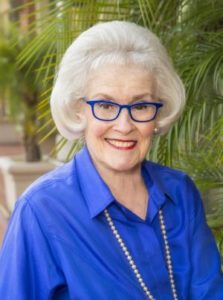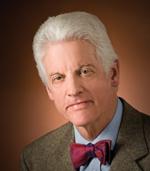Paul Brest (CASBS class of 1984) is Former Dean and Professor Emeritus (active), at Stanford Law School, a lecturer at the Graduate School of Business, and a faculty co-director of the Stanford Center on Philanthropy and Civil Society. He was previously president of the William and Flora Hewlett Foundation.A leading scholar and teacher of constitutional law and co-author of the casebook Processes of Constitutional Decisionmaking, Paul Brest now focuses his teaching and writing on public policy, judgment and decision making, and philanthropy. Recent articles in the Stanford Social Innovation Review include “When Can Impact Investing Create Real Impact?” (2013), “A Decade of Outcome Oriented Philanthropy” (2012) and “The Power of Theories of Change” (2010). He is co-author of Problem Solving, Decision Making, and Professional Judgment (2010) and Money Well Spent: A Strategic Guide to Smart Philanthropy (2008).Professor Brest joined the Stanford Law School faculty in 1969 and served as dean from 1987 to 1999 before becoming president of the William and Flora Hewlett Foundation in 2000. He returned to Stanford in 2012 to teach in the Law School, Graduate School of Business, and Masters in Public Policy program. His current courses include Problem Solving and Policy Design: Rational Choices and Behavioral Insights, Measuring and Improving the Impact of Social Enterprises, and Advanced Topics in Philanthropy.
John Seely Brown (JSB) was the Chief Scientist of Xerox Corporation until April 2002 and the director of its Palo Alto Research Center (PARC) until June 2000. He is currently a visiting scholar and advisor to the Provost at the University of Southern California and serves as the Independent Co-Chairman for Deloitte’s Center for the Edge.JSB is a member of the American Academy of Arts and Sciences, the National Academy of Education, and a Fellow of the American Association for Artificial Intelligence. He serves on numerous private and public boards of directors, including Amazon, and has been a trustee for nonprofits including the MacArthur Foundation and In-Q-tel. He co-authored (with Paul Duguid) The Social Life of Information and (with John Hagel) The Only Sustainable Edge and The Power of Pull. His most recent book, The New Culture of Learning, was co-authored with Doug Thomas at USC, and his current book, Design Unbound is co-authored with Ann Pendleton-Jullian from Georgetown University.JSB received a BA from Brown University in 1962 in mathematics and physics and a PhD from the University of Michigan in 1970 in computer and communication sciences. His eight honorary degrees include: May 2000, Brown University, Doctor of Science Degree; July 2001, London Business School, Honorary Doctor of Science in Economics; May 2004, Claremont Graduate University, Honorary Doctor of Humane Letters; May 2005, University of Michigan, Honorary Doctor of Science Degree, and May 2009, North Carolina State University, Honorary Doctor of Science Degree, May 2011, Illinois Institute of Technology, Honorary Doctor of Design; July 2013, Singapore Management University, Doctor of Information Systems, May 2014, Doctor of Science, Bates College.
As a member of Google’s executive team since 2003, Shona Brown’s responsibilities as SVP, Business Operations were to build both the People Operations and Business Operations groups. In 2011, she transitioned to a role leading all of Google’s technology for social impact efforts and in January of 2013 she became a Googler Emeritus and moved into an advisory role with the company. In addition to her ongoing role with Google, Dr. Brown is currently serving in an advisory role with a small portfolio of technology start-ups. Prior to joining Google she was a partner at McKinsey & Company, a management consulting company, where her focus was working with consumer technology companies on growth, innovation, and transformation. Dr. Brown is the author of Competing on the Edge: Strategy as Structured Chaos, which introduced a new strategic model for competing in volatile markets. She is a director of the following non-profit organizations: The Bridgespan Group, The Nature Conservancy, Code for America, Gooru, and The Exploratorium. She also serves on the board of PepsiCo. Dr. Brown has a bachelor’s degree in computer systems engineering from Carleton University in Canada, an M.A. in economics and philosophy from Oxford University (which she attended as a Rhodes scholar), and a Ph.D. and postdoctoral degree from Stanford University’s Department of Industrial Engineering and Engineering Management.
Jennifer Eberhardt (CASBS class of 2006) is the co-director of the Mind, Culture and Society Laboratory at Stanford University. The lab explores the ways in which the sociocultural environment and its products shape psychological experience. More specifically, research in the MCS lab examines how race, ethnicity, culture, gender, and social class affect perception, attitudes, motivation, and behavior. Eberhardt is the recipient of a John D. and Catherine T. MacArthur Foundation 2014 fellowship for her research on race and the criminal justice system.
Associate Vice President for Strategic Planning, Stanford University
Roberta Reiff Katz is Associate Vice President for Strategic Planning at Stanford University, working since 2004 in the Office of the President and assisting with the development and implementation of a variety of new University-wide initiatives as well as the ongoing strategic support of various interdisciplinary endeavors throughout the University. During 2009-10, Katz took a leave from her work at Stanford to serve as a Special Advisor to the Assistant Attorney General for Antitrust, U.S. Department of Justice. Katz has a successful record of executive leadership: Co-founder and CEO of Flywheel Communications, Inc., President and CEO of the Technology Network (TechNet), Senior Vice President, Secretary and General Counsel of Netscape Communications Corporation and Senior Vice President and General Counsel of McCaw Cellular Communications, Inc. (subsequently AT&T Wireless) and its subsidiary, LIN Broadcasting Corporation. Ms. Katz was also a lawyer in private practice, specializing in corporate law, as a partner with the firm of Heller, Ehrman, White & McAuliffe. Before becoming an attorney, Ms. Katz was a cultural anthropologist. She holds a PhD from Columbia University, a bachelor’s degree from Stanford University, and a law degree from University of Washington Law School.
Ira Katznelson is Ruggles Professor of Political Science and History at Columbia University; Research Associate, Centre for History and Economics, Cambridge University; and, since 2012, President of the Social Science Research Council. He served as President of the American Political Science Association in 2005-06, as Chair of the Russell Sage Foundation Board of Trustees from 1999-2002, and as President of the Social Science History Association in 1997-98. His book, Fear Itself: The New Deal and the Origins of Our Time (Liveright, 2013) has been awarded the Bancroft Prize in History, the J. David Greenstone Prize in Politics and History, and the Sidney Hillman Prize in Book Journalism. Other recent books include Liberal Beginnings: Making a Republic for the Moderns (Cambridge University Press, 2008; written with Andreas Kalyvas);When Affirmative Action Was White: An Untold History of Racial Inequality in Twentieth-Century America (W.W. Norton, 2006), and Desolation and Enlightenment: Political Knowledge After Total War, Totalitarianism, and the Holocaust (Columbia University Press, 2003). He has been a Guggenheim Fellow, and is a Fellow of the American Academy of Arts and Sciences and the American Philosophical Society.
Gary King is the Albert J. Weatherhead III University Professor at Harvard University — one of 24 with the title of University Professor, Harvard’s most distinguished faculty position. He is based in the Department of Government (in the Faculty of Arts and Sciences) and serves as Director of the Institute for Quantitative Social Science. King develops and applies empirical methods in many areas of social science research, focusing on innovations that span the range from statistical theory to practical application. His more than 150 journal articles, 20 open source software packages, and eight books span most aspects of political methodology, many fields of political science, and several other scholarly disciplines. King’s work is widely read across scholarly fields and beyond academia. He was listed as the most cited political scientist of his cohort; among the group of “political scientists who have made the most important theoretical contributions” to the discipline “from its beginnings in the late-19th century to the present”; and on ISI’s list of the most highly cited researchers across the social sciences. The statistical methods and software he developed are used extensively in academia, government, consulting, and private industry. He is a founder, and an inventor of the original technology for, Learning Catalytics (acquired by Pearson) and Crimson Hexagon, among others. King received a BA from SUNY New Paltz and a PhD from the University of Wisconsin-Madison.
Known for her research on governance, trust, legitimacy and other ways to enhance the quality of the relationship between citizens and government, Margaret Levi is also committed to understanding and ensuring that the goods we consume are produced in a manner that sustains both the workers and the environment. Her books include Of Rule and Revenue and Cooperation Without Trust? co-authored with Karen Cook and Russell Hardin. As a Fellow (CASBS class of 1994), she worked on Consent, Dissent, and Patriotism, and co-authored Analytic Narratives with Robert Bates, Avner Greif, Jean-Laurent Rosenthal, and Barry Weingast, the members of her CASBS working group. Both are in the Center’s Tyler Collection, Her most recent book, In the Interest of Others, co-authored with John Ahlquist, explores how organizations provoke member willingness to take costly actions in violation of their narrow economic interests and in service of a larger public good.A former president of the American Political Science Association, Levi is Professor of Political Science at Stanford University, and Jere L. Bacharach Professor Emerita of International Studies in the Department of Political Science at the University of Washington. She earned her BA from Bryn Mawr College in 1968 and her PhD from Harvard University in 1974. She is a fellow of the American Academy of Arts and Sciences and a Guggenheim Fellow. She has lectured and been a visiting fellow at universities and research institutions throughout the world. She periodically serves as a consultant to the World Bank.She was general editor of Cambridge Studies in Comparative Politics (1999-2014) and co-general editor of the Annual Review of Political Science. Levi serves on numerous boards promoted to the advancement of social science. She was on the CASBS Board of Directors, from 2002-2009; she was Chair when the Center became one of Stanford’s interdisciplinary independent laboratories, centers, and institutes in 2008.In addition to her academic pursuits, she and her husband Robert Kaplan are serious collectors of Australian Aboriginal art. Ancestral Modern,an exhibition drawn from their collection, was on view at the Seattle Art Museum (SAM) in 2012. Yale University Press and SAM co-published the catalogue.
Learn more on Margaret Levi’s personal website.
Sara Miller McCune is the founder of SAGE and is currently executive chairman of the company’s board of directors. Guided by an entrepreneurial spirit and an unwavering dedication to academia, the then-24-year-old Sara founded SAGE in 1965 to start a company that would allow scholars to disseminate quality research in their own voices and break new ground in emerging fields of study. Today, Ms. McCune also serves as a director of SAGE Publications Ltd.(London, founded in 1971) and Corwin, a SAGE company and leading publisher for educational administrators and teachers. SAGE set up subsidiaries in India in 1981 and in Singapore in 2006. Ms. McCune remains actively involved in the company’s expansion and development.Reflecting her long-standing interest in philanthropy, especially in promoting world justice, Ms. McCune is founder and president of the McCune Foundation, a nonprofit organization based in Ventura County, California, where SAGE’s home office is based. The foundation supports productive change through building social capital in two counties on California’s Central Coast. In 2007, Ms. McCune founded the Miller-McCune Center for Research, Media and Public Policy, which publishes the award-winning magazine Pacific Standard.In 2012, Ms. McCune received an honorary doctorate from her alma mater, Queens College, for her visionary work as publisher, philanthropist, and entrepreneur. In 2014, she was awarded an honorary fellowship from Cardiff University and an honorary doctorate from Bath University.An active supporter of the behavioral and social sciences, Ms. McCune was a long-serving member of the board of directors of the American Academy of Political and Social Science, and is on the Visitor’s Committee at the Social Science Research Council based in New York.
Heather Munroe-Blum (CASBS class of 2014) is a distinguished academic administrator and renowned scholar in the fields of psychiatric epidemiology and public policy. She served as Principal and Vice-Chancellor (President) of McGill University from 2002 to 2013; previously, she was Vice-President (Research and International Relations), University of Toronto; Director (Chair beginning October, 2014), the Canada Pension Plan Investment Board; Director, Royal Bank of Canada, the Gairdner Foundation; Member, Canada Foundation for Innovation, the President’s Council of the New York Academy of Sciences and the Trilateral Commission.Board term begins March 1, 2015
Bill Pade is a partner of Oak Hill Capital Management. At Oak Hill, a private equity firm with offices in New York and Menlo Park, CA, Bill focuses primarily on investments in the Technology sector. Prior to joining Oak Hill, Bill was a Director of McKinsey & Company, where he was most recently the managing partner of McKinsey’s Silicon Valley Office. He is a member of the board of directors of several privately held companies and a board member of several not-for-profit organizations, including the National Parks Conservation Association. Bill received a BA from Harvard College and an MBA from Harvard Business School. He and his spouse, Marcia, reside in Menlo Park, California.













